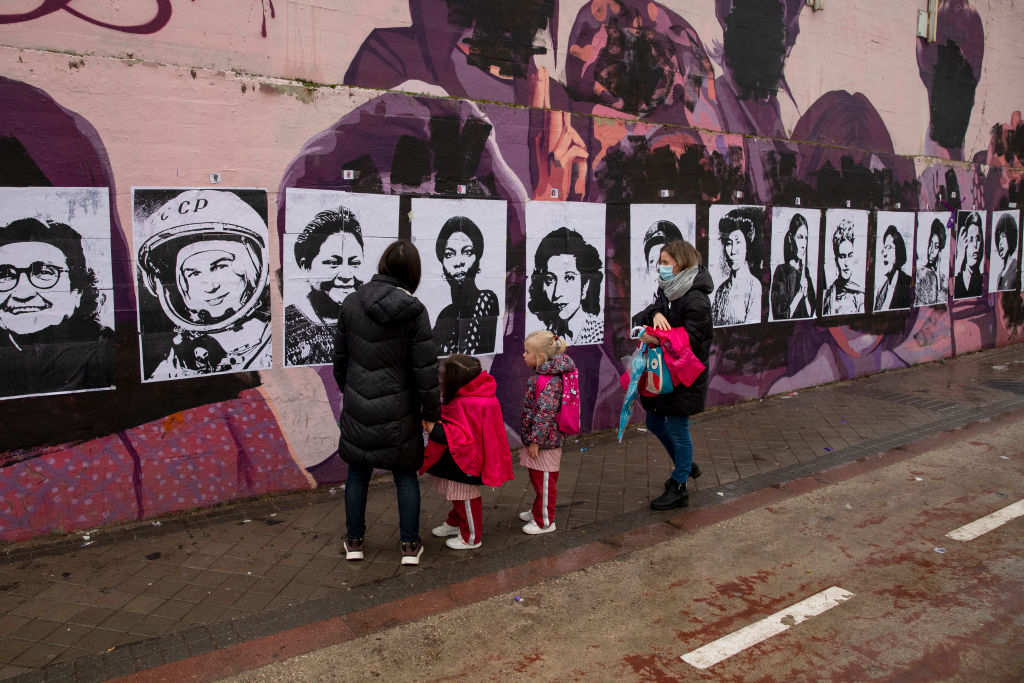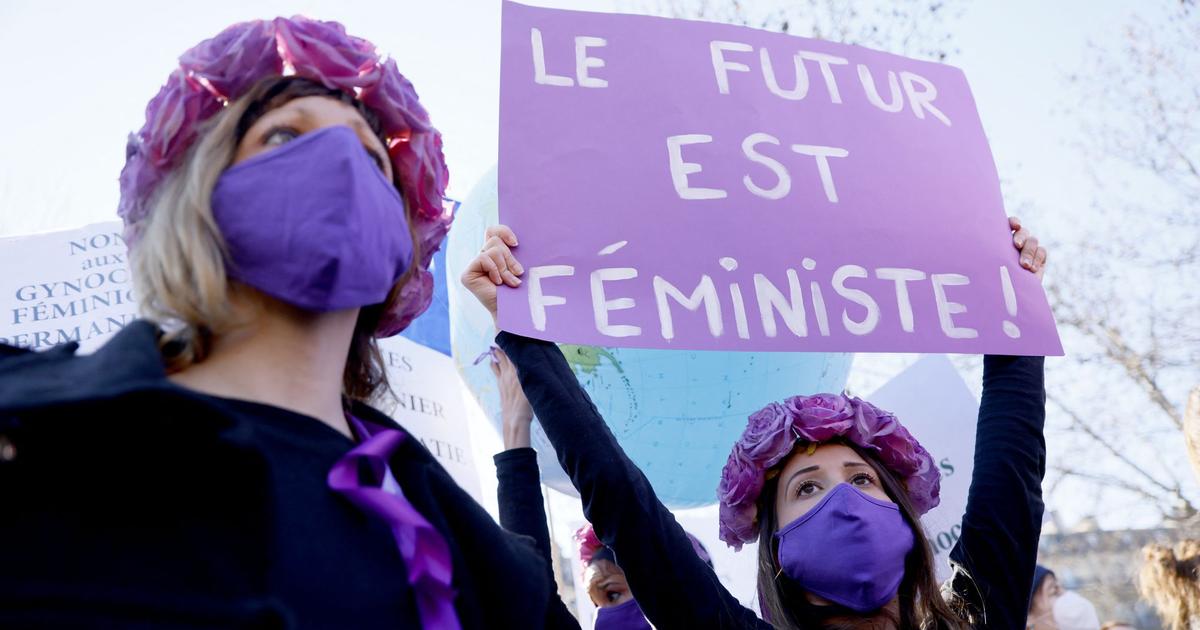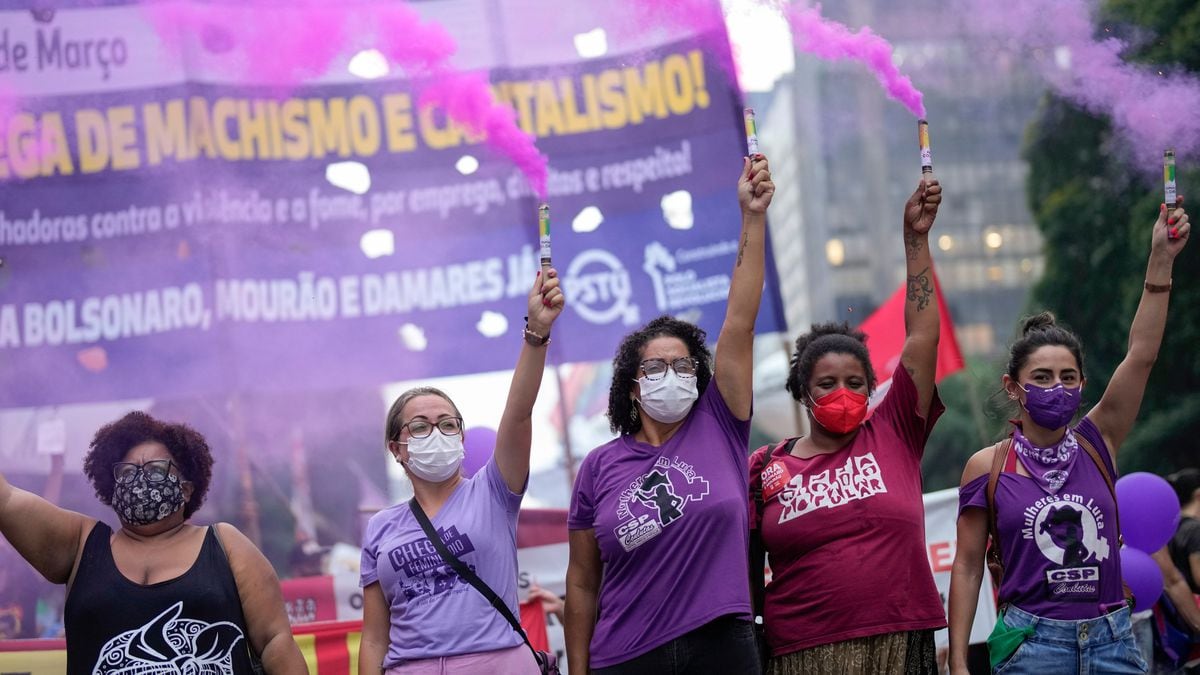3 stories of women fighting in times of pandemic 3:52
(CNN Spanish) --
The proper use of words and their meaning is essential to understand the value they have.
The suffix
ism
can refer to things as dissimilar as movements and doctrines in contrast to attitudes and trends.
Feminism is a movement that has evolved and is a broad concept, but whose starting point is equality, according to academia and rights organizations.
This March 8, in commemoration of International Women's Day, we review what feminism is and how it has evolved into feminisms that respond to different times, cultures, social classes and territories.
What is feminism?
If you look in any dictionary what feminism means, you will find a series of definitions all related to the recognition of equality between men and women in the social, economic and political fields.
For example, according to the Encyclopedia Britannica, feminism is "the belief in the full social, economic, and political equality of women."
The Royal Spanish Academy (RAE) defines it as follows: "Principle of equal rights for women and men".
This is because essentially feminism arises as a response to Western traditions that restrict women's rights.
But feminist thought has evolved over the years and now has global manifestations and variations.
advertising
Feminist marches of 8M 2022 in Mexico: main cities, routes and schedules
If we go back to the 1960s, at the beginning of the second wave of feminism, the struggle focused precisely on the discussion of principles such as equality and justice, as Encyclopedia Britannica points out.
Feminist women of the 1960s maintained that the social, cultural, and political inequality experienced by women was linked to the way they led their own lives.
It is worth mentioning that in these years the call for unity came primarily from "white women" and was based on "their assumption that women constituted a gender-based class or caste that was unified by common oppression."
Thus, it left out other women, of different races or social classes, as was the case with African-American women.
“How relevant are the truths, the experiences, the findings of white women for black women?”, the writer and activist Toni Cade Bambara asked then in
The Black Woman: An Anthology.
"I don't know if our priorities are the same, if our concerns and methods are the same."
The countries with the most gender inequality in America 1:08
The Merriam-Webster dictionary defines feminism as "the theory of political, economic, and social equality of the sexes" and as "organized activity on behalf of the rights and interests of women."
It was, by the way, the English word of the year for that dictionary in 2017.
What do feminisms defend today?
The debate about representation in the feminist movement persists.
Intersectionality has been one way to address this problem.
The term, coined in the late 1990s by Columbia University professor Kimberlé Williams Crenshaw, contemplates that a woman can be oppressed by different factors, such as race, class or gender.
Although they have in common to continue fighting for gender equality, feminisms are currently full of nuances: women of different origins, religion, race, gender identity and sexual orientation fight from different contexts and visions.
Afghan women who defy Taliban rules that restrict their access to education.
The claim of Latin American women to eradicate sexist violence and femicide as well as the battle for the decriminalization of abortion.
The professionals who continue to fight to break the salary gap or the athletes and scientists who ask for more visibility.
Women from the LGBT+ community or those of a different race who are protesting against discrimination.
Women who aspire to have greater representation in politics.
These are just some of the current feminist struggles.
Afghan women return to universities, but with conditions 0:51
What feminism is NOT
Wrong and anachronistic definitions can still be found: that feminism is "crazy and extravagant women" or "hysterical women who hate men and believe they are superior to them", but these stigmatizations still in force in the 21st century have nothing to do with feminism, according to accepted definitions.
And is it equivalent to the term
machismo
?
No. The semantics of these two terms are not comparable.
While feminism is the search for gender equality, machismo supposes an attitude of "preponderance of men" over women, according to the Urgent Spanish Foundation, Fundéu.
The meaning of machismo is negative: it is a form of sexism.
The meaning of feminism is based on a principle: that of equality.
"If you commemorate Women's Day, why not men's?": why this and other phrases circulating on 8M are inappropriate or wrong
8MFeminism




/cloudfront-eu-central-1.images.arcpublishing.com/prisa/NXAN6ORR7JECNIMY7N6WRPH3XA.jpg)




